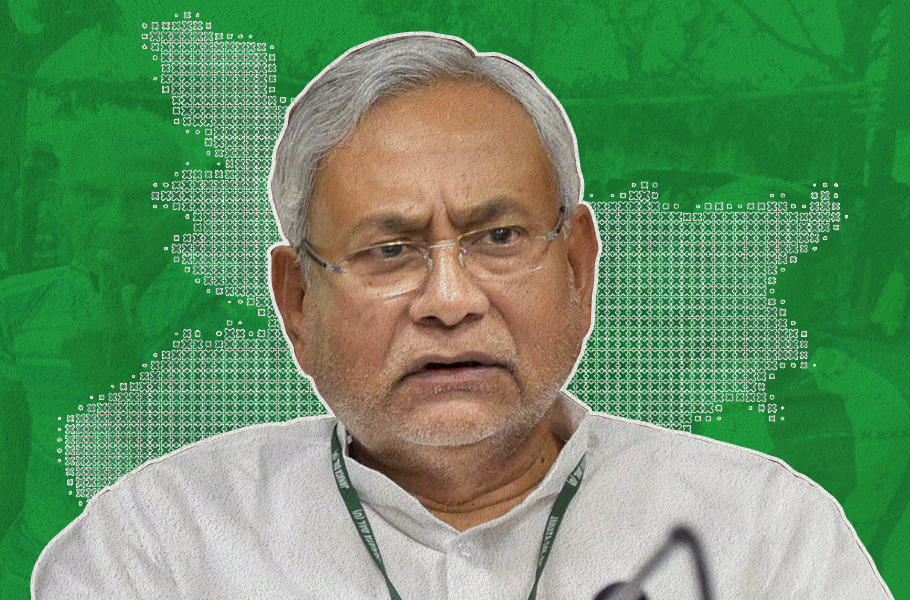
Nitish renews demand for special status for Bihar. But why now?

Bihar Chief Minister Nitish Kumar has once again raised the demand for special category state (SCS), and this time it has come in a non-election year.
A few days ago, Nitish Kumar trained his guns at deputy chief minister Renu Devi, who is from the BJP, for rubbishing the demand for special status for Bihar. Nitish Kumar, whose JD(U) is in alliance with the BJP in Bihar, said, “If someone in the state opposes the special status demand, it is possible that the person does not understand the issue.”
So, what is a special category status?
In case a state gets SCS, the Centre contributes 90% of the funds for central schemes, which makes a big difference in comparison to other states which have to contend with 60:40 or 80:20 division in funding.
But there has to be a strong ground for giving special status to any state. For example, it could be due to historical disadvantage, difficult or hilly terrain, nature of population (low density or a large share of tribals), strategic location along the border, economic or infrastructural backwardness.
The Constitution, however, does not have any provision for giving such special treatment.
At present, eight states in the North East, Jammu and Kashmir, Himachal Pradesh and Uttarakhand enjoy special category status.
The now-defunct Planning Commission of India (which had an organisation called the National Development Council (NDC)) used to approve SCS to states. Now that the Planning Commission of India doesn’t exist anymore, the idea of SCS is as good as dead. The NITI Aayog, which replaced the Planning Commission of India, does not have any authority to allocate funds to states. Effectively, the Centre has no provision to dole out special favours to states.
However, states like Odisha, Jharkhand, Andhra Pradesh and Bihar have time and again raised the demand for SCS, mostly in election years to wriggle out political advantages.
Why Nitish Kumar has raised the demand for special status now?
The latest report of the NITI Aayog states that Bihar stands last among all states when it comes to human development and growth parameters. Nitish Kumar has used the findings of this report to once again raise the issue of Bihar’s backwardness and demand special provisions.
Also read: Is Nitish Kumar’s fight for political relevance irrelevant?
As per the Niti Ayog report, Bihar’s annual per capita income is Rs 50,735, which is way behind the national per capital income of Rs 1,34,432. More than 50% of Bihar’s population lives below the poverty line. The state’s record in infant mortality and nutrition, women’s health and school dropouts etc. is way below average.
Opposition parties in Bihar have used the Niti Ayog report to take Nitish Kumar head-on for making “hallow claims” about the state’s development. Even as JD(U) leaders come under attack from the opposition Congress and the Rashtriya Janata Dal, the BJP has chosen to keep quiet instead of helping its alliance partner in combating the verbal salvos.
Advantage Nitish for now
Ever since JD(U) returned to the NDA fold in 2020, following a tryst with the RLD-Congress alliance, Nitish Kumar has chosen not to attack the BJP or Prime Minister Narendra Modi directly. Having said that, Chief Minister Nitish Kumar hasn’t really faced any pressure from the BJP, despite Nitish’s party being the junior partner in the alliance. Tarkishore Prasad and Renu Devi, the deputy CMs and BJP leaders, have chosen to remain under Nitish’s shadow, which probably gave the CM a chance to raise his 15-year-old demand for a special status for Bihar.
For now, Nitish can speak out loud because the BJP is still not confident of fighting the next Bihar election all alone.
Nitish’s renewed demand for SCS has no apparent reason except that his party JD(U)is fighting about 10 seats in Uttar Pradesh, which is due for polls next year. Making his presence felt will make the BJP pay attention to Nitish’s demands, if any, in Uttar Pradesh.

